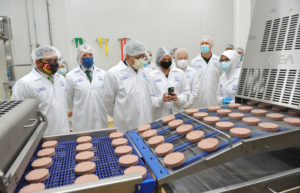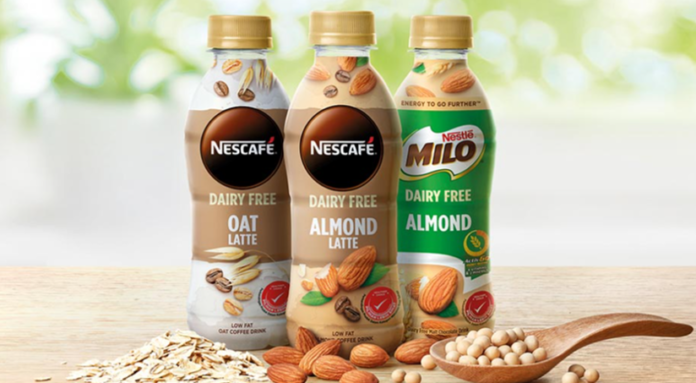Taking forward its commitment to shift towards a more plant-based strategy in coming years, Nestle has announced that it is launching plant-based versions of some of its most-loved brands in Asia. It is soon going to introduce a new dairy-free version of Milo, the world’s leading chocolate malt beverage. The product will be rolled out in Asia, starting first in Malaysia, a country where consumption of Milo dates back to 1950.
Besides this, Nestle Malaysia will also be introducing plant-based Nescafé lattes in oat and almond versions. The Nescafé Dairy Free Almond Latte combines almond and pea, while oat and soy are the main ingredients for the Nescafé Dairy Free Oat Latte. Nestlé has already launched them in several countries in Europe, Latin America and Oceania, and most recently in Japan. Dairy-free Milo and Nescafé Lattes will be available in Malaysia from this month.
Consumers in Asia are including more dairy alternatives in their diet, and to meet this growing demand, Nestle has replaced the milk in the original Milo recipe with almond and soy. The other two core ingredients – malt and cocoa – remain the same. As per the company, each bottle provides 6.5 grams of protein and is also low in sugar, with a combination of vitamins and minerals.
Mayank Trivedi, Head of the Dairy Strategic Business Unit at Nestle, said in a statement: “Milo is an iconic brand in Malaysia and across Asia, and much-loved across generations. We want to provide consumers with on-trend alternatives in formats they want. That’s why we’re delighted to launch Milo Dairy Free to support people’s lifestyle choices.”
ASEAN’s First Plant-Based Meal Solutions Manufacturing Facility
In another key development, Nestlé Malaysia has launched a Plant-Based Meal Solutions manufacturing facility, the first in ASEAN and one of only two in Asia. The new facility will cater to the rising demand for plant-based foods and will supply local demand as well as exports. The company says, “Getting people to eat more plant-based food is a priority for the Nestlé Group globally.”
Located within Nestlé’s existing Shah Alam Industrial Complex in Selangor, the new production site, with a build-up area of approximately 6,000 sqm, has an annual production capacity of 8,000 tonnes and is equipped with the latest food processing machinery and highly automated packing lines.


Focus on a Plant-Based Future
According to Nestle, it is focused on developing a wide variety of dairy alternatives made from pea, rice, oat, soy, coconut and almonds. “We’re expanding our offerings across Asia by developing a variety of great-tasting, nutritious and sustainable plant-based products.” says Guglielmo Bonora, Head of Nestlé’s R&D Center in Singapore. “We want to make it easier for people to embrace plant-based alternatives in their diet, while also reducing our carbon footprint across the supply chain.”
Nestle’s R&D center in Singapore serves as the regional innovation hub for the development of plant-based dairy alternatives in Asia. The center collaborates closely with Nestlé’s global R&D network of around 300 scientists, engineers, and product developers who are active in the research and development of plant-based products.
A survey by GlobalData revealed that over 40% of consumers in Asia are shifting to more plant-based diets, with 11% opting for vegetarian and vegan food, and a third moving to a ‘flexitarian’ diet that is lighter on meat and dairy products. Companies have sensed the need to make this transition in their portfolios as well. Many consumers cite environmental reasons, as plant-based proteins are produced with significantly lower emissions, land- and water usage.


